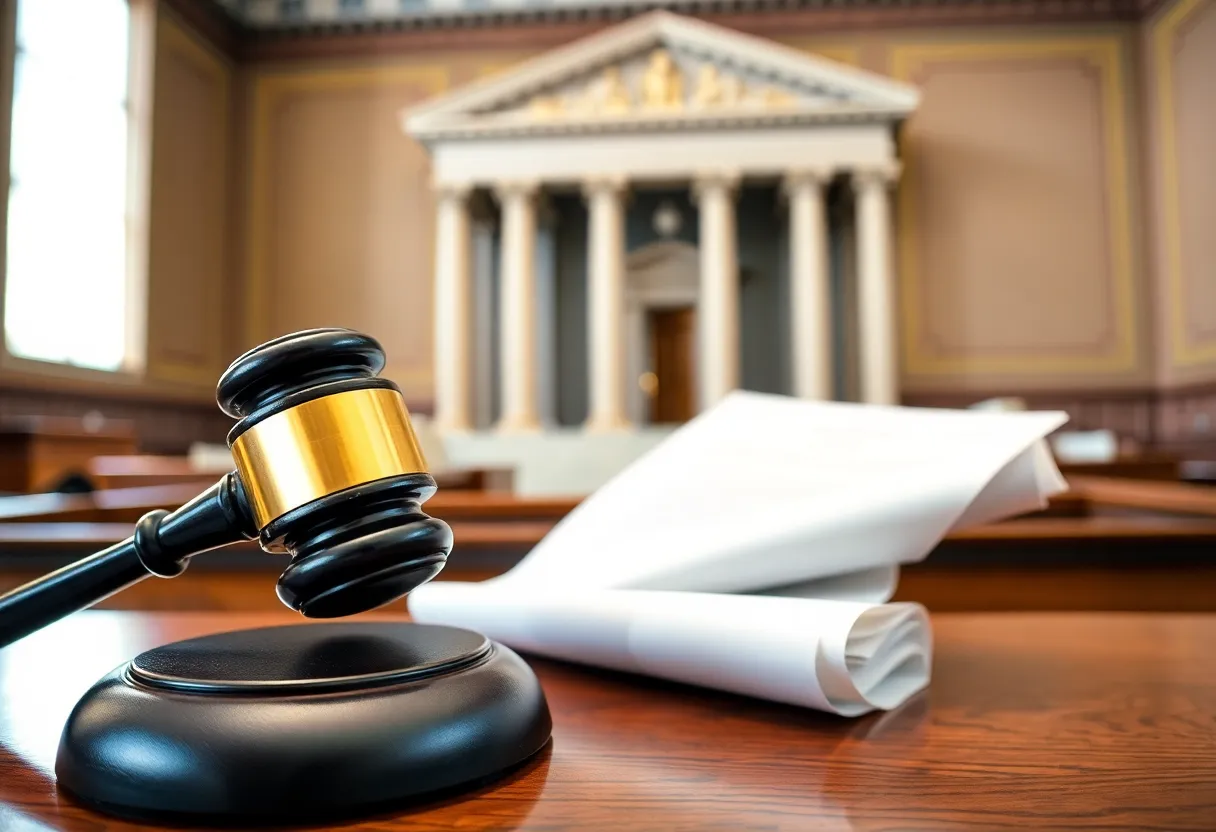News Summary
The U.S. Supreme Court has ruled that the Trump administration can proceed with the termination of Temporary Protected Status (TPS) for approximately 350,000 Venezuelans. This decision follows a prior hold placed by a California judge. As Venezuelans face potential deportations, advocates express concern about the impact on families and communities. The ruling signifies a shift in immigration policy and opens the door for ongoing legal challenges. Critics worry about the lack of evidence supporting claims against Venezuelans as security risks, contributing to emotional turmoil for many families.
Supreme Court Paves the Way for Termination of TPS for Venezuelans
In a big decision that affects the lives of many, the U.S. Supreme Court has ruled that the Trump administration can proceed with plans to revoke Temporary Protected Status (TPS) for about 350,000 Venezuelans currently living in the United States. This ruling comes after a California judge had placed a hold on the revocation, giving some Venezuelans a temporary extension of their protections.
What is Temporary Protected Status (TPS)?
TPS is a program that allows individuals from countries facing difficult situations—like war, natural disasters, or other extraordinary circumstances—to live and work legally in the U.S. Venezuelans were granted TPS due to the ongoing crisis under President Nicolás Maduro’s regime. Up until now, many have relied on these protections to build lives in the U.S.
A Shift in Immigration Policy
This ruling is seen as a significant win for the Trump administration, which has been trying to reshape immigration policy through the Supreme Court. The Trump administration aimed to officially end TPS for Venezuelans by April 2025, even though these protections were initially scheduled to expire in October 2026. The government argued that the California judge overstepped by blocking the administration’s decision.
Legal Challenges Ahead
As the dust settles on this ruling, Ahilan Arulanantham, a lawyer for Venezuelan TPS holders, described this situation as potentially the largest single action to strip immigration status from a non-citizen group in modern U.S. history. Advocates for Venezuelans are already voicing concerns about the immediate harmful effects on communities, fearing that deportations could come swiftly.
The Supreme Court‘s order didn’t include detailed explanations but noted dissent from Justice Ketanji Brown Jackson, hinting at the contentious nature of the case. While the ruling allows the administration to move forward with revoking TPS, it also leaves the door open for ongoing legal challenges regarding the TPS revocation in lower courts.
A Mixed Future for Venezuelan Families
This ruling impacts those who were granted TPS as recently as 2023. Another group of around 250,000 Venezuelans, who were granted TPS in 2021, faces expirations in September, further complicating the immigration landscape. Advocates worry about the potential for divided families where some members may be at risk of deportation while others remain legally protected.
Voices of Concern
Critics of the Trump administration’s approach have raised alarms, stating that claims of Venezuelans being public security risks or gang members lack evidence. This revocation not only affects individuals but could have ripple effects on mixed-status families, leading to emotional turmoil and uncertainty.
Advocates are particularly anxious, as they worry about the devastating impacts of sudden deportations on families that have built their lives in the U.S. Many Venezuelans have been here for years, and the prospect of being sent back to a country many fled due to dire conditions is alarming.
The Broader Implications
This Supreme Court decision ties into a larger pattern of the Trump administration’s efforts to rescind TPS for various immigrant groups, including those from Haiti. Supporters of the changes argue that keeping TPS for Venezuelans is not in the national interest and can impose undue drains on local resources and security services.
As this ruling unfolds, it’s clear that many Venezuelans may seek legal avenues to challenge deportations should they arise. The situation is fluid, with more legal battles expected in the coming months as advocates continue to push for justice and protections for Venezuelan migrants living in the U.S.
Looking Ahead
With multiple legal challenges ongoing regarding immigration policy under the previous administration, this case forms just a piece of a much larger puzzle. As protections for vulnerable communities hang in the balance, the future remains uncertain, and advocates for Venezuelans are steadfast in their efforts to protect those affected by these sweeping policy changes.
Deeper Dive: News & Info About This Topic
- The New York Times
- Wikipedia: Temporary Protected Status
- BBC News
- Google Search: supreme court temporary protected status
- The Washington Post
- Encyclopedia Britannica: Immigration
- Fox News
- Google News: venezuelans temporary protected status
- CBS News

Author: STAFF HERE PETERSBURG WRITER
The ST PETERSBURG STAFF WRITER represents the experienced team at HEREStPetersburg.com, your go-to source for actionable local news and information in St Petersburg, Pinellas County, and beyond. Specializing in "news you can use," we cover essential topics like product reviews for personal and business needs, local business directories, politics, real estate trends, neighborhood insights, and state news affecting the area—with deep expertise drawn from years of dedicated reporting and strong community input, including local press releases and business updates. We deliver top reporting on high-value events such as Grand Prix of St. Petersburg, Localtopia, and SHINE Mural Festival. Our coverage extends to key organizations like the St. Petersburg Area Chamber of Commerce and St. Pete Downtown Partnership, plus leading businesses in finance, manufacturing, and healthcare that power the local economy such as Raymond James Financial, Jabil, and Bayfront Health St. Petersburg. As part of the broader HERE network, including HEREJacksonville.com, HEREOrlando.com, HERETallahassee.com, and HERETampa.com, we provide comprehensive, credible insights into Florida's dynamic landscape.



